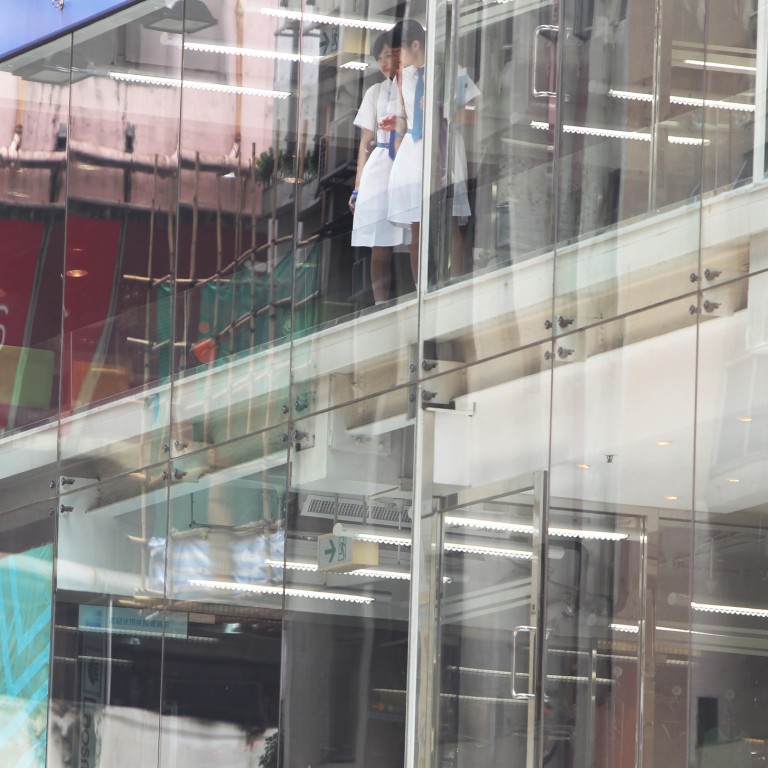
Hong Kong needs to outlaw growing practice of upskirting
Su-Mei Thompson and Lisa Moore say Hong Kong must stamp out upskirting, an outrage based on the stereotype of women as sexual prey
Upskirting - the act of photographing or videoing up a woman's dress or skirt - has recently captured the limelight in Hong Kong. Although this sort of deviant behaviour is not new, the internet and social media have created a new set of concerns about sexual voyeurism, given the scope for images to go viral.
In Hong Kong, there were over 110 reported incidents of upskirting last year, up from the 78 reports in 2011 and 101 reports in 2012.
There is currently no law in Hong Kong that specifically addresses the secret taking of images. Offenders can potentially be prosecuted under loitering laws or public order laws, while the offence of outraging public decency is harder to prove.
While the rates of prosecution and conviction are generally very low, last year a property development company employee was jailed for three months for secretly filming people at a show home with a mobile phone hidden in a paper box. More recently earlier this year, an anaesthesiologist at Queen Mary Hospital who was caught filming upskirt videos of female students was put on 18 months' probation.
Other countries have been more resolute about passing legislation to outlaw upskirting. Earlier this year, Kyoto passed a newly revised ordinance banning surreptitious filming in public places. Australia and New Zealand are among the countries that have legislation specifically targeting upskirting.
However, even with direct legal protection, laws are often an inadequate means to tackle the issue, especially as recording devices used by tech-savvy perverts have become more sophisticated.
This has motivated some countries to take a more creative approach. Japan has developed special panty fabric engineered to repel infrared rays. Meanwhile, South Korea requires camera-equipped phones to make a 65-decibel sound whenever a picture is taken.
Hong Kong, too, is taking practical steps to discourage upskirting. The Central Library and PMQ, among other public buildings, have installed panels and opaque stickers on glass walls and staircases where women are more vulnerable.
At The Women's Foundation, we hope Hongkongers will consider concerted efforts to actively tackle upskirting - and sexual harassment as a whole. Legislation that specifically targets upskirting and penalises the distribution of offensive images would send a clear message to predators and perverts that this type of behaviour is not condoned. Companies should review and eradicate security camera black spots within their premises and have clear zero-tolerance harassment policies. Individuals can join global movements like Hollaback that raise awareness to help end sexual harassment and encourage victims to speak up about their experiences.
At the core of upskirting is a repellent reinforcement of the stereotype of women as sexual prey. Where images by which they can be identified are posted online, it humiliates them publicly. All people should have a reasonable expectation of privacy in public places when it comes to their own bodies and that this right will be upheld.

